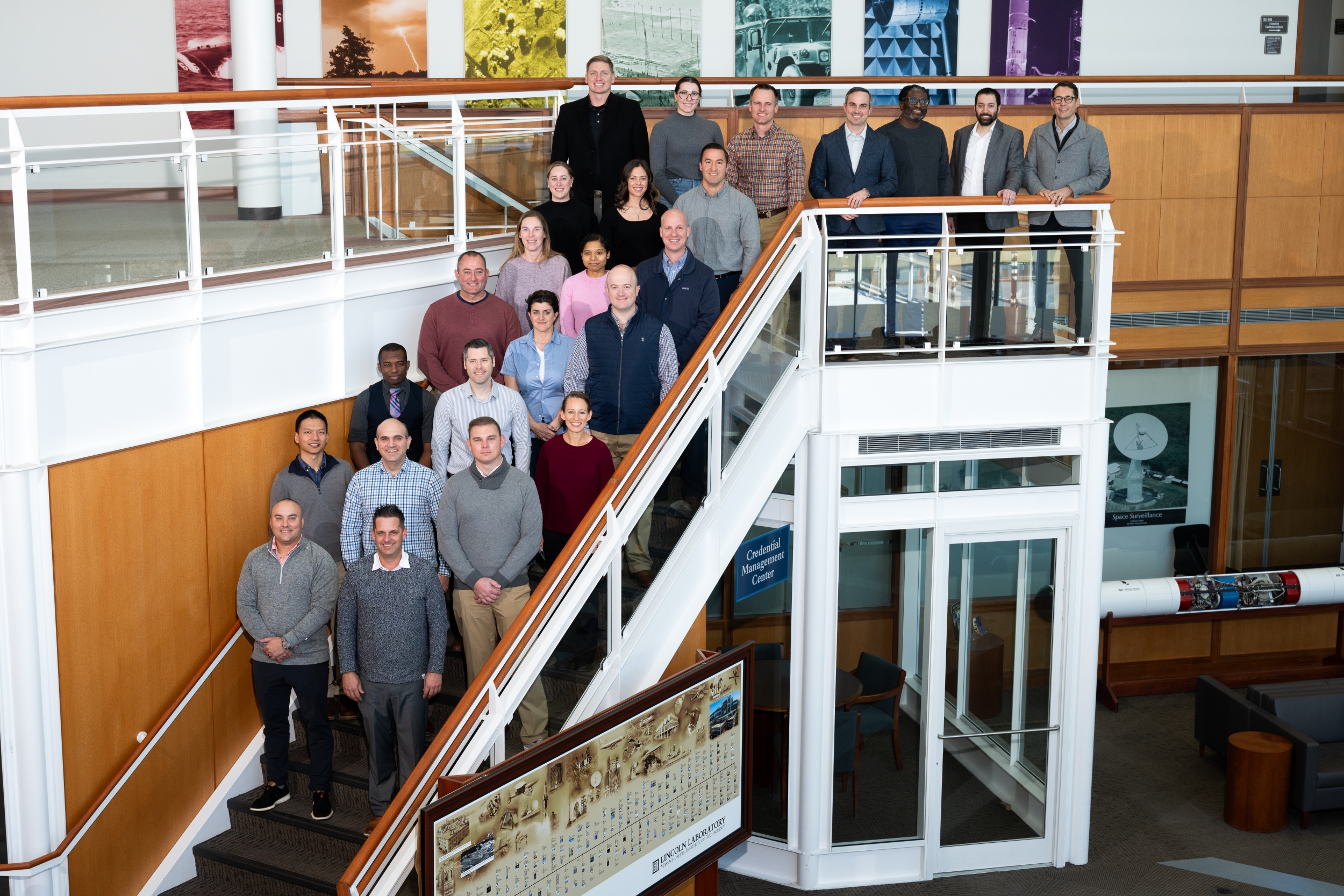U.S. Air Force officers in training visit Lincoln Laboratory

Approximately two dozen students and faculty from the Air Command and Staff College's Data Science and Artificial Intelligence (AI) Leadership course recently visited MIT Lincoln Laboratory to learn about programs involving data science and AI work at the Laboratory.
The Data Science and AI Leadership course is a year-long specialization that prepares officers to lead teams in developing and integrating data science and AI capabilities, strategies, and policies. During trips to Washington D.C., MIT campus, and Lincoln Laboratory, students engage with leading technology experts and key Department of Defense (DoD) stakeholders to build connections within the community, as well as increase their awareness of the current ecosystem.
"The students benefit from getting direct feedback from subject matter experts and current leaders of research teams regarding their capstone projects," says Daniel Strassler, an assistant leader of the Laboratory's Homeland Decision Support Systems Group and honorary adjunct professor of practice at the Air Command and Staff College. "By growing their network to include professionals at the Laboratory, they gain access to our network of contacts to help them find the right people or organizations to assist them with their future challenges."
Throughout their two-day visit, the students and faculty heard from a variety of technical experts about the Laboratory's work in AI and data science. Topics included how emerging AI techniques can be useful for analyzing surveillance video, improving weather forecasting for the U.S. Air Force, or helping information analysts identify emerging threats. Researchers also discussed applications of data science for estimating damage after disasters or building photorealistic virtual site models from limited imagery. Students then got a glimpse into the Lincoln Command, Control, and Collaboration Testbed, a facility where operational prototype systems are developed and used to maintain space domain awareness.
"The aim is to educate these students, who are going to be in leadership roles of research and operations teams, about what the Laboratory does," Strassler says. "The Laboratory has a deep and wide bench of capability that we can bring to bear to assist them. This, in turn, grows the Laboratory's ability to making meaningful impact in future missions as these new leaders reach back to the Laboratory for solutions."
In a new aspect of the visit this year, the students pitched their capstone projects to a panel of Laboratory staff in a “Shark Tank”-style presentation and received feedback on their ideas, which ranged from harnessing AI and machine learning in healthcare solutions to using AI tools to enhance pilot in-flight weather situational awareness and decision making. The visit ended with a closing discussion in which Strassler offered advice about navigating the challenges of conducting research and managing people, including how to lead projects without being a subject matter expert in the area.
U.S. Air Force Major Jeff Hartshorn says that the course exposed him to offices, organizations, and innovations that he would not have otherwise known about. “Experiencing the culture and climate of these different organizations of innovation was very insightful. Without a doubt, the course was one of the biggest highlights and experiences of this year, and I hope to continue looking for opportunities in these arenas.”
Collaborations with Air Command and Staff College are ongoing at Lincoln Laboratory, and the next round of students is expected to return to the Laboratory in 2026.
Inquiries: contact Kylie Foy.